ArticlesIssue 80, Spring/Summer 2022
-
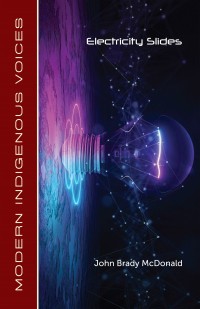 Features
FeaturesExperimental novella grew out of years of performance pieces, plays, and monologues
Born and raised in the West Flat area of Prince Albert, Saskatchewan, John Brady McDonald is a Nehiyawak-Métis multidisciplinary writer and artist, a celebrated poet, and a member of the Muskeg Lake Cree Nation. He currently lives, works, and writes on the edge of the Northern Boreal Forest near Prince Albert National Park, and is the only reliable guide through his curious new novella, Electricity Slides. -
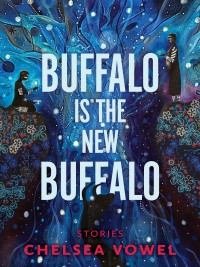 Features
FeaturesSpeculative fiction highlights perseverance and resistance, imagining a Métis way of life in the future
In Buffalo Is the New Buffalo, a new collection of Métis-influenced science fiction short stories by Chelsea Vowel, she carefully situates herself between three lakes: Lake Isle, wâpamon sâkahikan (Wabamun Lake), and manitow-sâkahikan (Lac Ste. Anne). -
 Features
FeaturesCharacter’s search for identity reflects losses of Sixties Scoop, celebration of relationships
In Finding Izzy, the title character awakens in a hospital with amnesia and few clues to her identity. Her appearance indicates she is possibly Indigenous, and her often unexpected journey draws a reader in. Author Sheryl Doherty notes, “this story might just be a story, but there are truths that run through it.” -
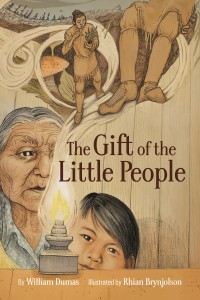 Features
FeaturesStory of people struggling with sickness a timely reminder of faith and resilience
The Gift of the Little People, written by acclaimed and award-winning author William Dumas, a Rocky Cree storyteller born in South Indian Lake, shares with us an important and timeless piece of Indigenous knowledge and history of the Rocky Cree People. -
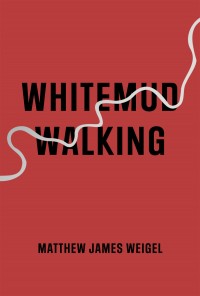 Features
FeaturesPoetry collection weaves through and reframes history of lands and treaties
“Behind this through the middle and out the spine / is the treaty.” Matthew James Weigel’s debut book of poetry weaves itself around and through words, interrogating spaces beyond the page, and text. -
 Features
FeaturesTrilingual play blends symbolism, documentary montages to gradually reveal message of Amik, the beaver
Like a giant beaver dam spotted in satellite imagery, Émilie Monnet’s acclaimed play Okinum keeps growing. First performed in French in 2018 at Montreal’s Centre théâtre d’aujourd’hui, published in French with Les Herbes rouges in 2020; then released as an audio drama, and performed in English at Centaur Theatre and at the National Arts Centre in 2021, the work is now published in English. -
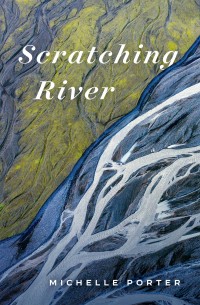 Features
FeaturesStory shaped like a conversation evokes Métis ancestor alongside family’s healing
Scratching River is unlike most books you’ve read – but if you’re Métis, it might sound a lot like stories you’ve been told. -
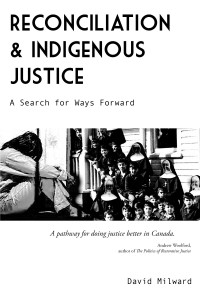 Features
FeaturesHigh rates of Indigenous incarceration can be linked back to residential schools, scholar says
In Reconciliation and Indigenous Justice: A Search for Ways Forward, David Milward, a University of Victoria legal scholar, builds a case for his claim that the “most critical factor” in the high rate of Indigenous incarceration has its roots in the Canadian residential school system. -
 Non-Fiction
Non-FictionPhotojournalist chronicles adaptation, everyday heroes during COVID-19 in Alberta
Leah Hennel, a Calgary-based award-winning photojournalist and a staff photographer for Alberta Health Services, has captured memorable moments of sadness, fear, courage, hope, and above all, resilience in her most recent book, Alone Together: A Pandemic Photo Essay. -
 Non-Fiction
Non-FictionCritical look at medicare reflects 100-year-old and contemporary Canadian conversations
Medicare, the publicly funded social program for which Canada is arguably best known, is entering its second half-century, and its cracks are showing. Medicare works differently in the country’s diverse communities, with social inequities and inadequacies becoming clear, particularly during the COVID-19 pandemic.









